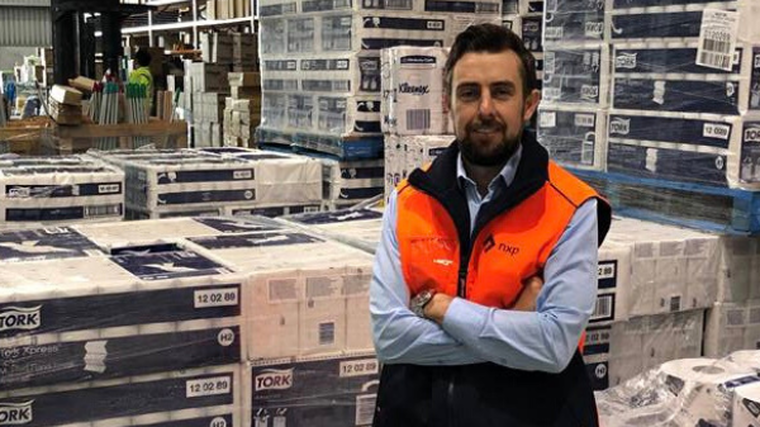Gull helps in virus battle

Gull New Zealand is stepping in to help maintain vital supplies of hand sanitiser as service organisations battle the spread of the coronavirus.
The fuel retailer is repurposing 50,000 litres of ethanol, which is used as a fuel additive, to help fill a supply shortage of the ingredient needed for the manufacture of hand sanitiser.
Gull has teamed up with NXP, a supplier to the commercial cleaning industry and government agencies, to ensure there is enough sanitiser to meet the immediate needs of police, defence, schools and healthcare workers.
A nationwide supply shortage of ethanol has hit local production and Joe Taylor, CEO of NXP, says the new volumes of product will be prioritised for essential services.
“We are most grateful to Gull for their support in helping New Zealand’s essential services through one of the toughest healthcare challenges the country has faced in recent memory,” says Taylor, pictured above.
Borders shut
New Zealand has closed its borders to everyone but citizens and residents in an attempt to stop the spread of Covid-19.
The ban applied to planes boarding after 11.59pm on Thursday. Partners and children of citizens or residents are exempt from the ban, as are some health and humanitarian workers.
Prime Minister Jacinda Ardern says given all 28 confirmed cases of coronavirus related to overseas travel, the risk was too great not to take action.
“All of the cases of Covid-19 identified in New Zealand relate to people travelling to New Zealand and bringing the virus with them – therefore we need to further restrict the risk of people bringing the virus into New Zealand,” she adds.
Foreign Minister Winston Peters also announced a “do not travel” guideline from the government – the first time it has been done in New Zealand.
The moves come as latest figures from Stats NZ reveal an estimated 100,000-110,000 New Zealand residents are travelling overseas at present. Of these, about two-thirds are New Zealand citizens and one-third are non-New Zealand citizens.
The estimate is an indication of how many New Zealand residents may return in the coming weeks. The government has encouraged short-term travellers to return to New Zealand, given international travel restrictions due to the pandemic.
Clampdown on gatherings
In further moves to limit the spread of the outbreak, the government has also announced further limits to gatherings, extending their advice to include cancelling indoor events of more than 100 people.
The limit was previously 500 people but Health Minister David Clark revealed the change on March 19 and says the policy will affect weddings, funerals and the hospitality sector.
Universities and educational institutions, workplaces and public transport are exempt from the ban, as are supermarkets.
Under the Health Act, those flouting the new guidelines could be fined up to $4000 or imprisoned up to six months.
Cases increase
There were 28 cases of Covid-19 as of 1.20pm on March 19, with the extra eight incidents of the disease identified on March 19 all related to overseas travel.
There is still no evidence of community transmission in New Zealand, Director-General of Health Ashley Bloomfield says.
Tourism suffers
Tourism operators are pleading with the government for help as more than 40 companies face the prospect of having to close or partially close their doors because of the Covid-19 shutdown.
Tourism Industry Aotearoa (TIA) has given Tourism Minister Kelvin Davis details of 65 large operators that desperately need assistance. The organisation says across those businesses, “there is a minimum of 4,890 planned job losses”.
James Dalgliesh, managing director of Go Rentals, says 80 per cent of his revenue vanished with the government’s border control measures, and current reservations indicate it will fall further to 90 per cent.
He adds that he will be asking a number of his 150 employees to work reduced hours and senior staff to accept a temporary salary cut, to try to preserve the workforce in the short term.
Air NZ lands $900m
As airlines also dramatically reduce operations, the government will loan up to $900 million to Air New Zealand to protect essential air routes and keep the company operating.
The debt funding agreement will be provided in two lots – a tranche of $600m with interest rate expected to be between seven per cent and eight per cent per annum and a second tranche of $300m at an expected nine per cent per annum.





